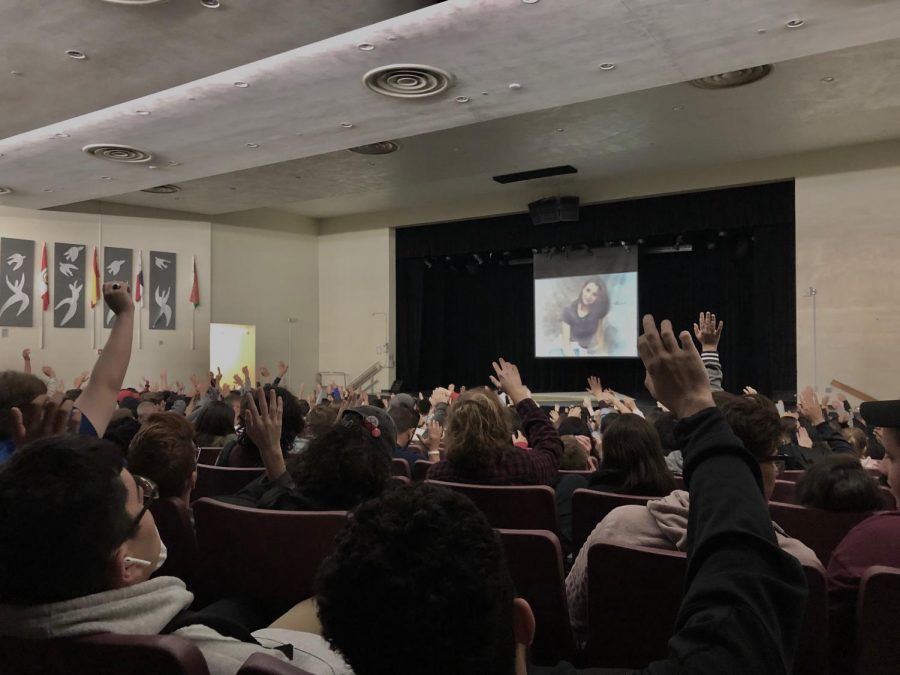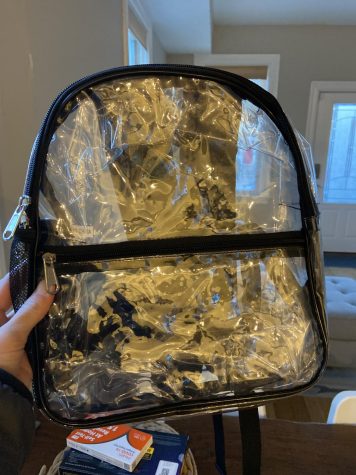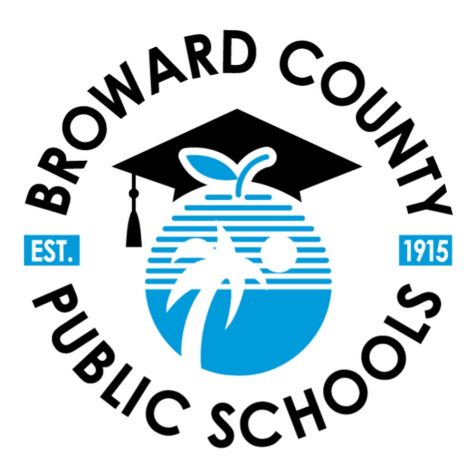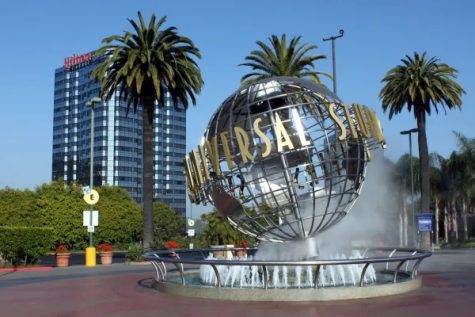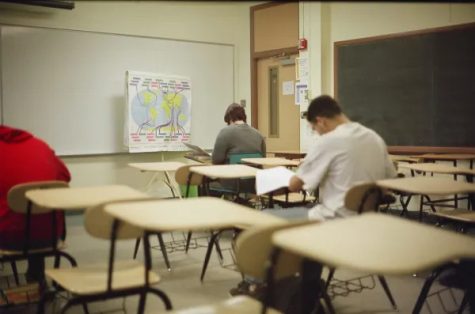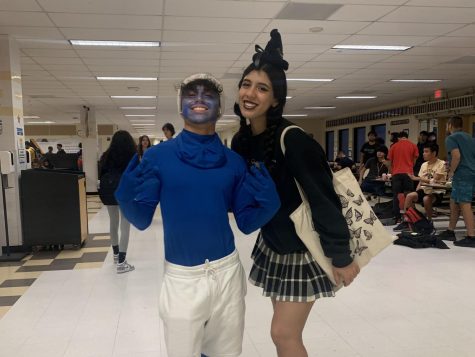Rachel’s Challenge educates, inspires students to spread kindness
Students at the January 9 Rachel’s Challenge assembly in the auditorium pledge to “start their own chain reaction.”
Dead silence filled the auditorium as students raised their hands in unison. A petite woman with black glasses and pulled back hair stood at the front of the room with a microphone. The whole room repeated after the woman without hesitation: “I accept Rachel’s Challenge.”
On January 9, the nonprofit Rachel’s Challenge, founded by Rachel Scott’s family in 2001, presented strategies on how to spread kindness and positivity in high schools to a crowd of 1,400 students. Scott was the first victim of the tragic Columbine shooting in 1999, dying at the age of 18. Her story inspired the day’s speaker Meichelle Gibson to join the movement.
A few weeks before her death, Rachel wrote a short essay called “Code of Ethics” which theorized the idea that if one person shows an act of kindness, it will start a chain reaction, spreading positivity everywhere. The presentation promotes five challenges in the hopes of inspiring schools to spread Rachel’s message and to prevent tragedies like those at Columbine and Marjory Stoneman Douglas from ever happening again.
Gibson outlined the five steps in Rachel’s challenge: look for the best in others, dream big, choose positive influences, speak with kindness and start your own chain reaction. According to Gibson, these steps can help change schools, communities and maybe even the world. Gibson explained that Rachel committed her life to kindness; even after her death, her positive and warming attitude lives on through these challenges. Based on her essay, Rachel wanted people to know that one small act of kindness can impact anyone that person comes in contact with. Rachel’s Challenge aims to create a kind and loving atmosphere in all schools and communities.
The presentation received mostly positive reactions, stirring up emotions within students. Sophomore Genavieve Prieto said that the story of Rachel inspired her to make a difference in people’s lives.
“I tried to be friends with kids who may be sitting alone at lunch, trying to make them feel wanted at school,” Prieto said. “Also [while working at Antonio’s Pizza-rant], I wrote notes with positive messages and put them in the takeout bags.”
Rachel’s Challenge came to the school to inspire this generation, but the movement has been around for years. SRO Brittany Assam said that she remembers listening to the presentation at Taravella High when she was a teenager and has since realized how much it affected her life.
“It opened my eyes to how I see people,” Assam said. “I began to realize that everybody has a story and everybody is going through something that other people may not understand.”
After the presentation, a focus group was held in the Media Center from 1:30-2:30 p.m. for student leaders and club representatives to brainstorm ways to spread this information to students who did not see the presentation. The commitment to create and sustain a culture of compassion within the school and community was apparent as students shared their personal experiences with bullying and abuse. A student talked about how a teacher’s comfort had a positive impact in a time of despair. The student expressed how Rachel’s Challenge could spread the same philosophy.
“To make the biggest impact [you’ve got to be] willing to make the smallest difference because if one person can do one thing, it can ripple out to make a huge difference in the life of your school,” Gibson said.
The school plans to implement ideas to spread Rachel’s message around campus. The Rachel’s Challenge club, SGA and Art club plan to create bulletin boards around the school with positive messages. SGA also plans to put black and gold handprints over the school walls in April to connect the greater Wildcat community. Gibson told students in the focus group they could even start their own literal “chain reaction,” where paper chains with positive notes hang on the fence by the football field.
West Broward and Everglades are among other schools taking advantage of a grant by an anonymous Parkland donor to fund the program in Broward.
